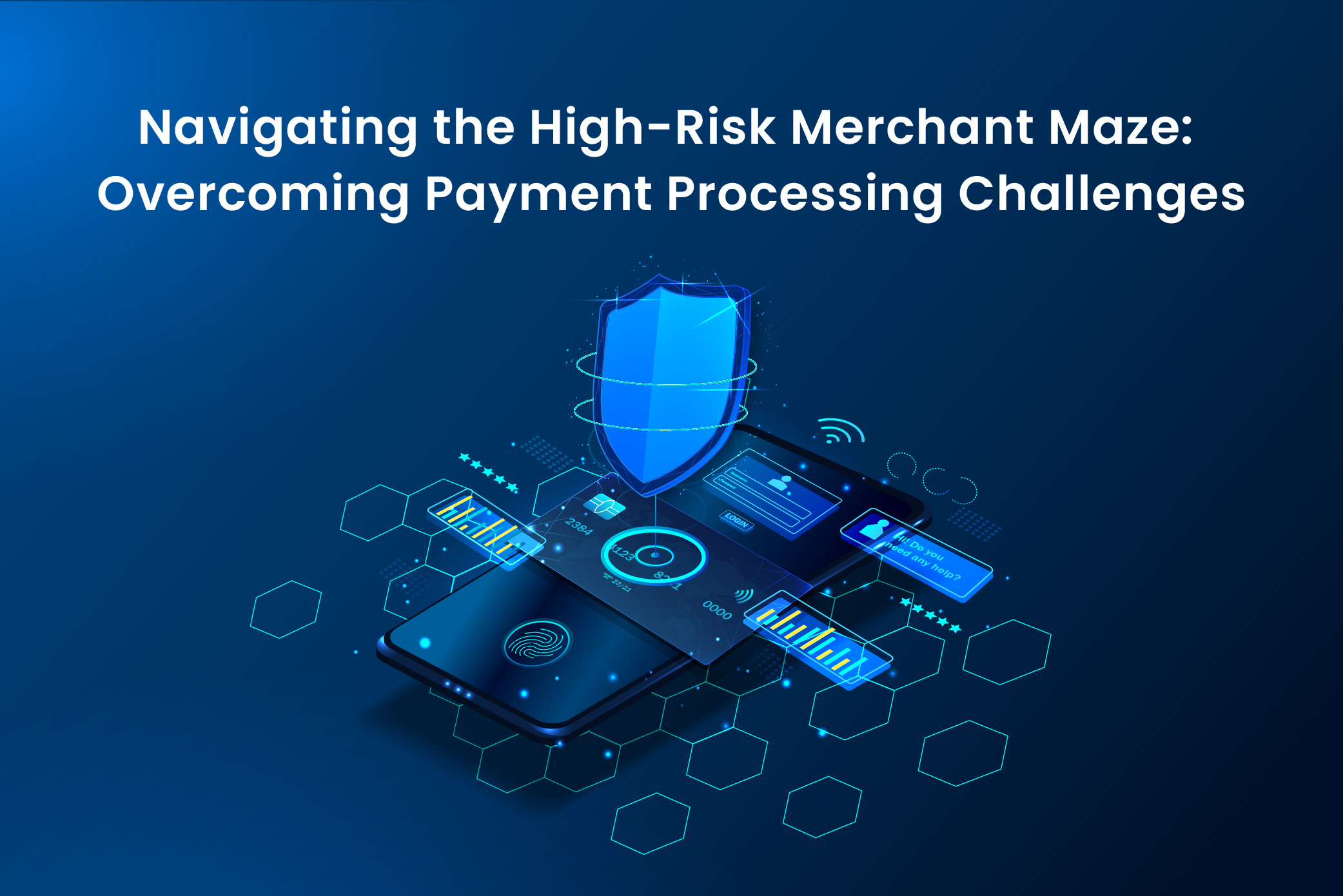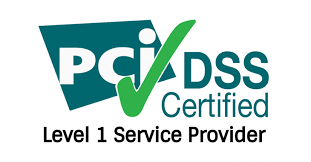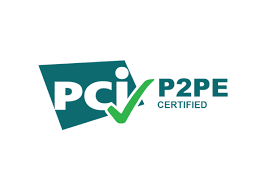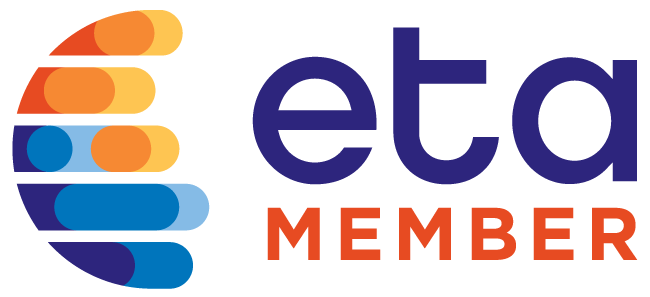Introduction: Addressing Payment Solutions for High-Risk Merchants
High- risk merchants operate in sectors with greater exposure to fraud, chargebacks and compliance challenges, such as online gambling, subscription services, and travel. For these businesses accessing reliable payment services can be a significant hurdle, as most providers consider them too risky to onboard.
Most service providers avoid offering payment solutions to high- risk merchants due to the elevated risks of fraud, chargebacks, and financial losses. These businesses often experience higher dispute rates, creating liability for processors. Additionally, compliance with strict regulations demands more oversight, which can increase operational costs for high-risk merchant account providers. To minimize exposure, many opt to avoid high-risk merchants or charge higher fees, limiting access for these businesses.
Recent statistics highlight these challenges stating: ecommerce fraud is expected to exceed $48 Billion Globally in 2024, with North America accounting for nearly 42% of these losses.
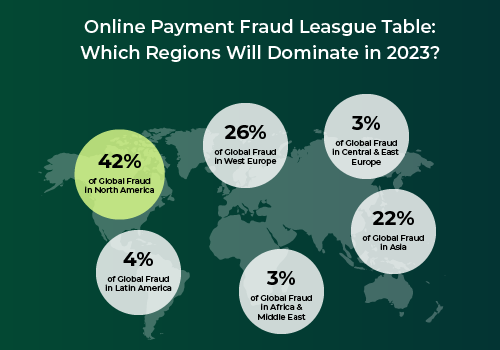
This blog will explore common problems high- risk merchants face, the challenges with existing solutions, and strategies to overcome these hurdles effectively.
The Problems face by High- Risk Merchants
Merchants in high-risk industries encounter challenges beyond standard payment processing issues. They operate under greater scrutiny due to regulatory compliance demands, higher frauds risks, and unpredictable chargebacks. As a result, these businesses face steep fees, delayed settlements, and reduced access to reliable financial services. This not only restricts their ability to provide seamless payment experiences but also compliances growth and operational efficiency, forcing them to constantly manage both financial risks and compliance obligations.
1. High Chargeback Rates:
Chargebacks- while intended to protect consumers, pose a major problem for high- risk merchants. With fraudulent or unjustified charge backs (friendly fraud- when a customer requests a refund or chargeback for a purchase without a legitimate reason) on the rise, businesses must handle lost revenue, increased dispute resolution costs, and the uncertainty of having their high-risk merchant accounts terminated. If a merchant’s chargeback ratio exceeds the threshold set by payment providers, they risk losing access to high-risk merchant services.
2. Limited Access to Payment Providers:
Many traditional payment processors avoid high- risk businesses due to perceived risks of fraud, regulatory compliance hurdles, and high chargeback rates. These merchants often find themselves paying higher fees or struggling to find high-risk merchant account providers that are willing to onboard them. This limited access can prevent growth and customer retention, as businesses without diverse payment methods may lose customers at checkout.
3. Risk Compliance Costs:
High- risk businesses are subject to strict regulations, such as PCI DSS (Payment Card Industry Data Security Standard) compliance. These regulations demand ongoing investment in technology and processes, making it expensive to maintain compliance. Non- compliance could result in hefty fines and further restrict access to essential high-risk merchant services.
4. Increased Fraud Risks:
Fraud detection tools are expensive but necessary. Many merchants must use multiple tools and fraud prevention tools to detect fraud effectively. Yet, balancing the costs of these tools with the need to secure transactions can become a financial strain, especially for smaller merchants.
Agitating the Challenges:

Solutions for High-Risk Merchant Payment Processing

Overcoming the challenges faced by high-risk merchants requires a strategic approach that balances security, compliance, and customer experience.
Instead of relying on traditional solutions, these businesses benefit from working with specialized providers who understand the complexities of their industries. By leveraging advanced technologies, proactive fraud management, and tailored payment options, merchants can minimize risks while optimizing their payment flows.
The right solutions not only help reduce disputes and fraud but also enable smoother operations and long-term business growth.
The burden of managing disputes also weighs heavily. A growing trend of friendly fraud, where customers falsely claim they did not authorize a transaction, forces businesses to divert resources toward lengthy dispute processes. With manual chargeback management prone to errors, merchants need automated solutions to stay ahead—but at a steep cost.
1. Leveraging Specialized Payment Processors:
High-risk merchants benefit from working with specialized payment processors that understand their unique needs. These providers often offer customized solutions, including higher chargeback thresholds and tailored fraud protection. Such processors are more willing to onboard businesses that operate in high-risk sectors, ensuring smoother operations.2. Automated Chargeback Management
Investing in automated chargeback management systems reduces the time and cost involved in disputes. These systems track chargeback trends and provide insights to prevent future incidents. Automated tools can also alert businesses to suspicious activity, helping to detect friendly fraud early.3. Adopting a Multi-Layered Fraud Detection Strategy
Multi-layered fraud detection combines tools such as behavioural analytics and real-time monitoring to identify suspicious patterns. This proactive approach minimizes false positives, ensuring genuine customers are not mistakenly blocked. A layered strategy also allows businesses to adapt quickly as fraud tactics evolve.4. Diverse Payment Methods with Risk Scoring
Offering diverse payment options improves customer satisfaction, but it’s essential to implement risk-scoring systems to assess the potential risks of each transaction. This ensures that high-risk transactions are flagged without disrupting the overall payment flow. Collaboration with payment gateways that support risk scoring is a crucial step toward achieving this balance.5. Staying Ahead of Compliance with Real-Time Monitoring
Compliance can no longer be an afterthought. Using real-time dashboards to monitor PCI compliance and other regulatory compliance metrics ensures that businesses remain up to date with changing requirements. This reduces the risk of fines and protects businesses from unnecessary interruptions in payment processing.While adopting specialized solutions can alleviate many challenges, high-risk merchants must take a proactive and holistic approach to remain sustainable. Merchants need a solution provider that not only addresses industry pain points but also delivers ongoing support to help them scale efficiently.
Unity Pay meets this need by focusing exclusively on complexities of high- risk industries. Our expertise in high-risk environments enables us to craft strategies that not only mitigate risk but also promote growth.
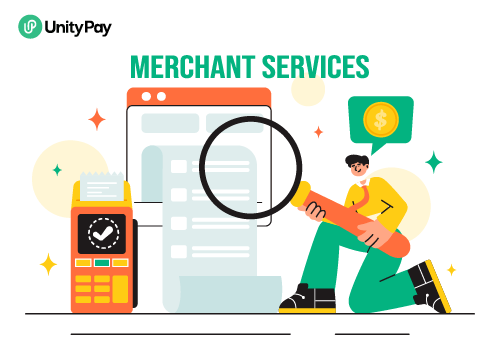
How Unity Pay Stands Out?
Unity Pay offers a comprehensive solution tailored to high- risk merchants. Unlike traditional providers, Unity Pay’s platform is built to accommodate businesses with higher chargeback ratios while still maintaining strict fraud prevention standards.
Some of our key features include:
1. Flexible Chargeback Management:
Unity Pay’s automated chargeback tracking system empowers merchants to swiftly identify and respond to disputes. By providing real-time insights into transaction statuses and customer interactions, our platform minimizes revenue loss by allowing merchants to proactively engage with disputes before they escalate. This capability not only preserves cash flow but also helps build better relationships with customers, ultimately leading to reduced chargeback rates over time.
2. Advanced Fraud Detection Tools:
Our solutions integrate multi-layered fraud prevention tools that incorporate real-time tracking and analysis. With advanced algorithms assessing transaction data across various parameters to identify suspicious patterns, enables merchants to filter out potentially fraudulent activities before they occur. This robust transaction monitoring approach protects businesses from financial losses and enhances overall security, ensuring that legitimate transactions are processed without unnecessary delays.
3. Diverse Payment Acceptance:
With our merchant services, businesses can offer multiple payment options, from credit and debit cards to alternative payment methods. This diversity improves customer experience by offering flexibility and convenience without compromising security. Additionally, our payment solutions are designed to integrate seamlessly with existing systems while maintaining high- security standards. This flexibility not only drives sales but also enhances customer satisfaction and loyalty.
4. Real-Time Compliance Monitoring:
Unity Pay’s intuitive dashboard provides insights into regulatory compliance requirements, keeping merchants on top of compliance obligations effortlessly. By monitoring changes in laws and regulations in real-time, our platform helps businesses stay informed and compliant without the need for constant manual oversight.
Furthermore, we prioritize PCI compliance, including adherence to the PCI DSS (Payment Card Industry Data Security Standard) and the implementation of PCI P2PE (Point-to-Point Encryption). These protocols ensure that sensitive cardholder data is securely processed and transmitted, significantly reducing the risk of data breaches.
High-Risk Merchant Account Comparison: Unity Pay vs. Competitors
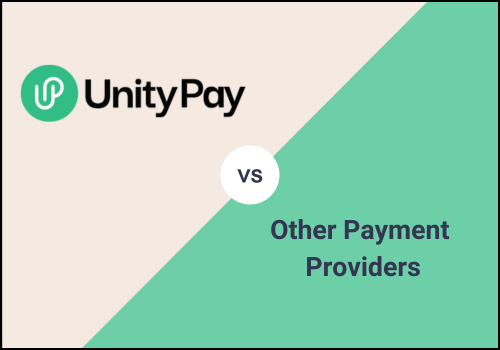
1. Chargeback Management
- Unity Pay: Our advanced chargeback management strategies helps merchants identify and respond to disputes in real-time, minimizing potential revenue loss and enhancing customer relationships.
- Competitors: Many competitors may not provide robust chargeback management tools, leaving merchants to handle disputes manually, which can be time-consuming and prone to errors.
2. Fraud Detection and Prevention
- Unity Pay: We utilize multi-layered fraud detection tools that incorporate real-time monitoring and behavioral analytics. This proactive approach helps high-risk merchants filter out fraudulent transaction effectively.
- Competitors: Some providers may offer limited fraud protection, requiring merchants to invest in additional third-party tools, increasing operational costs.
3. Fees and Rates
- Unity Pay: Our transparent pricing model is designed to accommodate high-risk merchants, making our high-risk merchant rate comparison favourable. We offer competitive rates that reflect unique nature of these businesses and ensure there are no hidden fees, allowing for better financial planning.
- Competitors: Many competitors often impose higher fees and rates, particularly for high-risk accounts, which can significantly impact profit margins. Merchants may also face sudden rate increases without clear justification.
4. Payment Method Diversity:
- Unity Pay: We support a wide range of payment methods, from credit and debit cards to alternative options, enhancing customer satisfaction and increasing conversion rates.
- Competitors: Some competitors may limit payment options for high- risk merchants, reducing customer choices and potentially leading of lost sales at checkout.
Compliance Support:
- Unity Pay: Our real-time compliance monitoring ensures that high-risk merchants stay updated with regulations such as PCI DSS, helping them avoid fines and disruptions in services.
- Competitors: Many providers may tend to offer minimal support in compliance, requiring merchants to invest significant resources into maintaining compliance independently.
Conclusion
High- risk merchants operate in a challenging environment, where access to reliable payment services, fraud prevention tools, and compliance are ongoing concerns. However, with the right strategies and partnerships, these challenges can be managed effectively.
Unity Pay’s specialized services empower high- risk businesses to overcome these hurdles, ensuring another payment operations, enhanced customer satisfaction, and sustained growth.
As the payment industry evolves, proactive solutions and reliable partnerships are critical for high-risk merchants. Unity Pay remains committed to supporting these businesses with advanced tools and expertise, ensuring they thrive in today’s competitive landscape.

